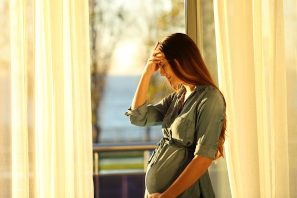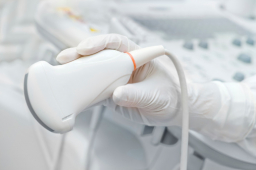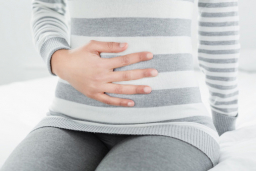10 symptoms of pregnancy in the first weeks
Signs of pregnancy before taking the test
Before you take a pregnancy test, your body will produce the first signs of pregnancy. In the first few days, there are symptoms and signs that indicate that a woman is expecting, even before a period is missed. Depending on how sure the early pregnancy symptoms are, gynaecologists divide them in three groups:
Early signs of pregnancy in the first 15 days
These are the first to appear. Specialists know them as the presumptive signs of pregnancy and they are the first things that make a woman think she could be pregnant. They are physical changes which are very common in everyone, and sometimes pregnancy is not even the most probable cause. They usually appear the first week of pregnancy, which normally coincides with the third week from the date of the last period. Here, we have put together the early symptoms of pregnancy so you need not be in any doubt:
1. Missed period (with exceptions)
- No period or amenorrhoea is usually the first symptom of pregnancy.
-
For women who have regular cycles, pregnancy becomes a possibility when the period is about a week late.
- It is more difficult to detect in women who have irregular menstrual cycles, and,; even in the case of women who have regular cycles, sometimes menstruation can be late or not even come one month, usually after a journey, an emotional shock, an illness or some other disruption.
- There are special situations in which it is natural for a woman not to have her period. Its absence is therefore considered normal and pregnancy can be ignored: this is the case in children and young adolescents, mothers who are breastfeeding and women in their first months of menopause.
2. Implantation bleeding: short and superficial
-
Sometimes, the period continues in spite of pregnancy. However, this is superficial and short-lived. A pregnant woman may not realise her condition for a few weeks if she does not have any other pregnancy symptoms, such as nausea, vomiting or faintness.
- Another cause of spotting during pregnancy is the so-called implantation bleeding, which takes place when the embryo is implanted in the mother’s uterus.
3. Nausea and vomiting: most often in the morning
Digestive troubles are one of the first most common symptoms of pregnancy and they usually take place in the morning, just after waking up or after breakfast. That is why they are commonly known as morning sickness. However, they can appear throughout the day.
Nausea and vomiting appear days after the implantation of the oocyte in the uterus, due to the hormonal alterations it causes.
To alleviate these symptoms, it is better to eat little and often so the stomach is always busy, but never too full.
4. Abdominal pain: “Am I pregnant or about to have my period?”
Quite often, newly-pregnant women have symptoms similar to menstruation.
The most typical symptom is a pain similar to the one felt just before the period, located in the lower part of the abdomen: a constant, dull ache that can be relieved with local heat and painkillers. If you think you could be pregnant, the best thing is to consult a doctor or a gynaecologist before taking any kind of drug.
This pain usually takes place during the first weeks of pregnancy, even before the mother is aware of her condition, which is why it can be mistaken for PMS.
5. Breast swelling and pain
Breast pain and changes are also characteristic of the early stages of pregnancy. On many occasions they are the first sign of pregnancy due to the increase in breast size and tenderness. The breasts are prepared for lactation from the first month of pregnancy.
6. “I need to urinate all the time”
In the early weeks of pregnancy, the uterus enlarges, rounds out and starts pushing against the bladder. A compressed bladder holds much less urine, which is another sign of pregnancy. The feeling of having to go to the toilet more often appears at an early stage. During this period, it is important for the mother to improve her intimate hygiene to avoid any possible urine infections. After the first few weeks, the uterus grows upwards, occupying the rest of the pelvis and releasing the bladder. During the last months of pregnancy, the urge to urinate will come back more often.
7. Fatigue and sleepiness: “I fall asleep everywhere”
This can also be one of the first signs of pregnancy. During the first few weeks of pregnancy, the mother may feel exhausted and want to sleep throughout the day.
In these cases, it is best to rest whenever possible. This condition usually subsides after a few weeks but sometimes a continuous feeling persists throughout the pregnancy; in this case the doctor must rule out the existence of anaemia or hypersomnia (excessive sleep or drowsiness during the day).
8. Change in smell and taste
Hormonal changes in a pregnant woman’s body can alter her senses of smell and taste. It is normal for a pregnant woman to crave certain foods she would not usually eat or to feel aversion for others because her senses intensify. The best thing is for the woman to satisfy her cravings, as long as she maintains a balanced diet during her pregnancy.
9. Dizziness, vertigo and sudden fainting
The hormonal changes of pregnancy cause the organs of our body to be altered, including the heart and brain, which are primarily responsible for giddiness and fainting spells.
Oestrogen and progesterone slow the blood flow towards the uterus making the number of syncopal episodes increase, as not enough blood reaches the brain during a few moments and the mother-to-be can feel dizzy or faint.
Pregnant women usually recover quickly and without major complications. To prevent fainting, it is best to sit with your feet up when you feel dizzy.
10. Spotting and pregnancy with no symptoms
There may be cases in which circumstances can lead a woman to believe that she is not pregnant. This is the case with spotting or pregnancies that do not give rise to the typical signs or obvious symptoms of pregnancy (nausea, vomiting etc.).
In the first case, spotting or implantation bleeding is superficial, but it can be misinterpreted. The pregnant woman will realise her condition the following month, when she has no period.
As for pregnancies without symptoms, they can be discovered during a consultation at the gynaecologist’s several months later, normally by means of an ultrasound scan in which a baby of 12 weeks or more can be seen.














